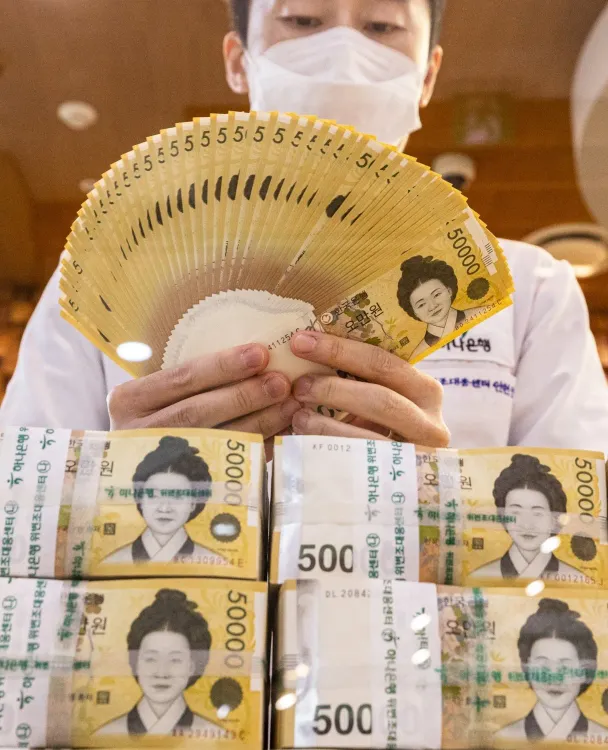Will South Korea Enhance Talks with the US on Forex Policy?

Synopsis
Key Takeaways
- South Korea is enhancing communication with the U.S. on forex policies.
- Reinstated on the U.S. monitoring list, South Korea is addressing currency practices.
- Key discussions target tariff measures, economic security, and investment cooperation.
- A comprehensive agreement is aimed for by July 8.
- Currency policy remains central to bilateral negotiations.
Seoul, June 6 (NationPress) The finance ministry in South Korea affirmed on Friday its commitment to improving dialogues with the United States to foster mutual understanding and trust concerning foreign exchange rate policies.
This commitment follows the U.S. Treasury Department's decision to keep South Korea on its monitoring list for currency practices. Notably, Seoul was reinstated on this list in November 2024 after being removed in November 2023, marking the first time it had been off the list since April 2016.
In a press release reported by Yonhap news agency, the ministry stated, “We will continue to expand mutual understanding and trust regarding exchange rate policies through regular communication with the U.S. Treasury Department.”
Furthermore, it emphasized that ongoing discussions between South Korean and U.S. financial authorities concerning exchange rate matters would be conducted meticulously.
Currency policy remains a significant topic in bilateral negotiations, particularly in relation to the sweeping tariff measures introduced during U.S. President Donald Trump's administration.
In April, both countries agreed to center their discussions on four key areas: tariff and non-tariff measures, economic security, investment cooperation, and currency policy. They aim to finalize a “package” agreement by July 8, coinciding with the expiration of a 90-day suspension of Washington's tariff implementation.
Last month, South Korea's Deputy Finance Minister Choi Ji-young held discussions with U.S. Treasury Assistant Secretary for International Finance Robert Kaproth on the sidelines of the 58th Asian Development Bank (ADB) Annual Meeting in Milan to address currency-related concerns.
In the meantime, the U.S. department released an updated “monitoring list” in its semiannual “Report to Congress on Macroeconomic and Foreign Exchange Policies of Major Trading Partners of the United States.” South Korea's inclusion on this list was attributed to its bilateral trade surplus and substantial current account surplus.
The latest monitoring list includes South Korea, China, Japan, Taiwan, Singapore, Vietnam, Germany, Ireland, and Switzerland. All except Ireland and Switzerland were present on the list in the November 2024 report.









